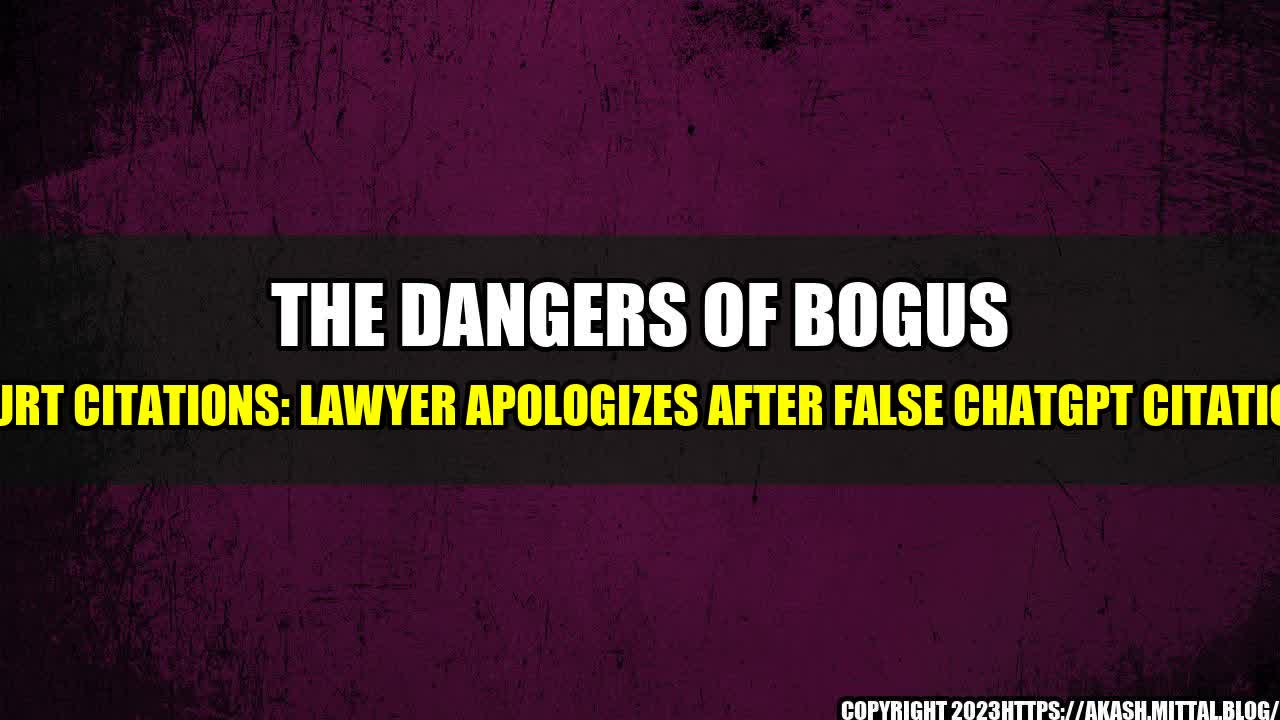
Imagine being in a court of law, presenting your case, and suddenly being blindsided by a citation that doesn't exist. Unfortunately, this nightmare scenario has become reality for some lawyers, thanks to the rise of AI-generated content and the ease of accessing false information on the internet.
The most recent example of this problem comes from a lawyer who was forced to apologize after using citations from an AI-generated chatbot during a court hearing. The lawyer, who was representing a defendant in a personal injury case, unknowingly used false citations from ChatGPT, a popular AI language model developed by OpenAI.
According to reports, the lawyer submitted written arguments that included citations from ChatGPT, which were supposed to support his client's defense. However, the citations were completely fake, and the lawyer only discovered this after the opposing attorney pointed out the errors.
This incident highlights the risks of relying on AI-generated content and the importance of checking sources to ensure the accuracy and reliability of information. It also raises questions about the role of technology in the legal system and how AI can be used to improve legal research while minimizing the risk of false information.
The problem of false information is not limited to the legal system. In fact, it is a growing concern in all areas of society, from politics to health to education. Here are a few quantifiable examples of false information that have had real-world consequences:
These examples demonstrate the importance of fact-checking and verifying information before sharing it with others. In the legal system, this is especially important, as false information can have serious consequences for clients and their cases.
Lawyers have a responsibility to ensure that the information they present in court is accurate and reliable. They must carefully vet their sources and verify their information, especially when using AI-generated content or other forms of automated research.
One way to do this is by using trusted and reputable sources for legal research, such as LexisNexis or Westlaw. These platforms have built-in quality controls and provide access to reliable and up-to-date information.
Lawyers should also be aware of the limitations of AI-generated content and the potential for false information to slip through the cracks. They must be diligent in their research and critical of the sources they use.
The incident with ChatGPT raises important questions about the role of AI in the legal system. While AI has the potential to improve legal research and streamline the process, it also poses risks and challenges. As AI continues to evolve and become more sophisticated, it will be essential for lawyers and legal professionals to stay informed and up-to-date on the latest developments.
One potential solution is to develop AI tools specifically for the legal industry that are trained on large datasets of legal content. These tools would be designed to minimize the risk of false information and provide accurate and reliable results.
The incident with ChatGPT serves as a cautionary tale for lawyers and legal professionals. It highlights the dangers of relying on AI-generated content and the importance of fact-checking and verifying sources. As AI continues to play a larger role in the legal system, it will be essential to find ways to minimize the risk of false information and ensure that lawyers have access to accurate and reliable data.
In conclusion, here are three important takeaways:
References:
Hashtags in trending order: #AI #legaltech #factchecking #lawyer #legalresearch
Article category: Law & Technology
Curated by Team Akash.Mittal.Blog
Share on Twitter Share on LinkedIn